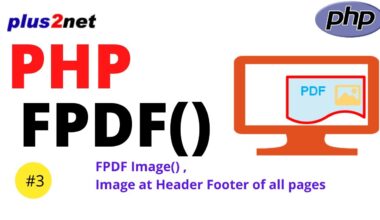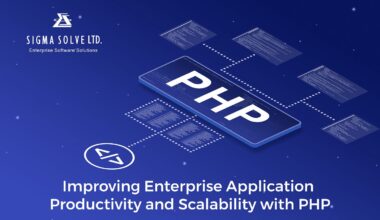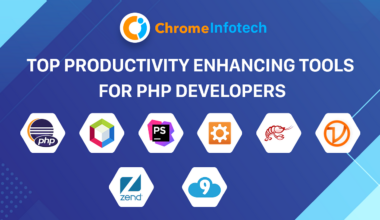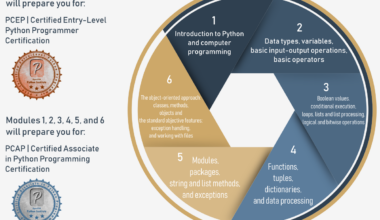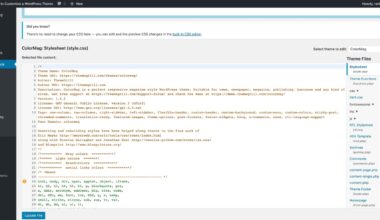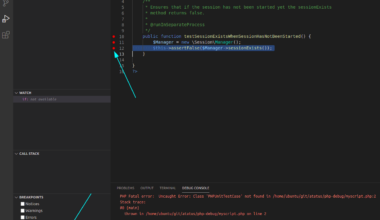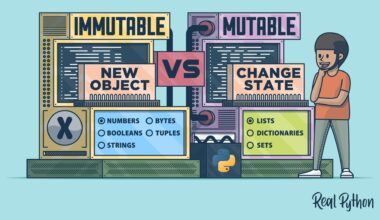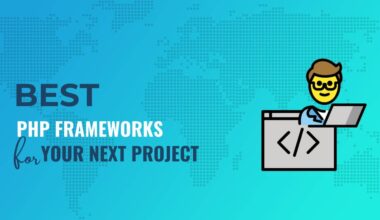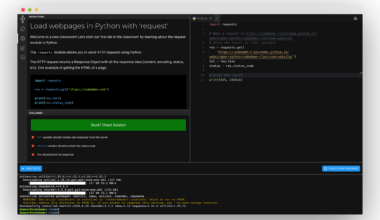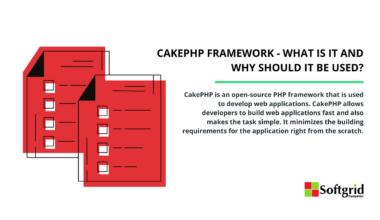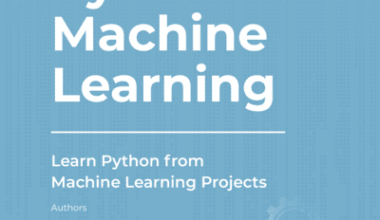What are PHP Frameworks?
PHP frameworks are pre-built software development tools that assist developers in creating web applications using PHP programming language. These frameworks are designed to provide a basic structure for building web applications, making it easier and faster for developers to create robust and scalable web applications.
By utilizing PHP frameworks, developers don’t need to start coding a web application from scratch, as they can use pre-existing features and functions to reduce development time and effort. This means that developers can focus on coding the unique aspects of their web application, rather than worrying about the basics of web development.
PHP frameworks also come with a wide range of features such as database abstraction, security, and template engines, which enable developers to build web applications that are more efficient, secure, and maintainable.
Some popular PHP frameworks include Laravel, Symfony, CodeIgniter, Yii, and CakePHP. Each of these frameworks has its own set of features and benefits, making it important to choose the right one for your web application.
In summary, PHP frameworks are essential tools for developers looking to create web applications quickly and efficiently. They provide a solid foundation for web development, allowing developers to focus on building unique and complex features for their web application.
Popular PHP Frameworks in the Market
There are many PHP frameworks available in the market, each with its own set of advantages and disadvantages. It is important to choose the right one for your web application, based on your specific needs and requirements. Here are some of the most popular PHP frameworks in the market:
1. Laravel: Laravel is one of the most popular PHP frameworks, known for its elegant syntax and powerful features. It is an open-source framework that follows the Model-View-Controller (MVC) architectural pattern. Laravel comes with features like authentication, routing, and database migration, making it a great choice for web applications of all sizes.
2. Symfony: Symfony is another popular PHP framework that is widely used for enterprise-level web applications. It is known for its modular architecture and its ability to integrate with other third-party libraries. Symfony comes with features like routing, authentication, and templating, making it a great choice for building large-scale web applications.
3. CodeIgniter: CodeIgniter is a lightweight PHP framework that is easy to learn and use. It comes with a small footprint and requires minimal configuration, making it a great choice for small to medium-sized web applications. CodeIgniter comes with features like caching, security, and templating, making it a versatile and efficient framework.
4. Yii: Yii is a high-performance PHP framework that is known for its speed and scalability. It comes with features like caching, validation, and authentication, making it a great choice for building complex web applications. Yii follows the MVC architectural pattern and has a strong community of developers and contributors.
5. CakePHP: CakePHP is a PHP framework that is known for its simplicity and ease of use. It comes with features like database access, validation, and templating, making it a great choice for building small to medium-sized web applications. CakePHP follows the convention over configuration (CoC) approach, which reduces the amount of code needed to build web applications.
In conclusion, there are many PHP frameworks available in the market, each with its own strengths and weaknesses. It is important to choose the right one for your web application based on your specific needs and requirements. By choosing the right PHP framework, you can build efficient, secure, and scalable web applications that meet the needs of your users.
Factors to Consider When Choosing a PHP Framework
Choosing the right PHP framework is crucial to the success of your web application development project. Here are some factors to consider when choosing a PHP framework:
1. Learning Curve: The learning curve of a PHP framework is an important factor to consider. If you are new to web development or PHP frameworks, it is best to choose a framework that has a smaller learning curve. CodeIgniter and CakePHP are great options for beginners, as they have a simple and intuitive syntax.
2. Scalability: The scalability of a PHP framework is important if you plan to build a large-scale web application. Laravel and Symfony are great options for enterprise-level web applications, as they offer a wide range of features and scalability options.
3. Community Support: The PHP framework community is an important factor to consider when choosing a framework. A strong community of developers and contributors ensures that the framework is regularly updated and improves the quality of the code. Laravel and Symfony have strong communities, making them great options for web applications that require ongoing development and support.
4. Security: Security is a critical factor to consider when choosing a PHP framework. A secure framework will help protect your web application from attacks and vulnerabilities. Laravel and Symfony have built-in security features, making them great options for web applications that require a high level of security.
5. Performance: The performance of a PHP framework is important if you want your web application to load quickly and efficiently. Yii and CodeIgniter are known for their speed and performance, making them great options for web applications that require high performance.
6. Cost: The cost of a PHP framework is an important factor to consider, especially if you are on a tight budget. Most PHP frameworks are open source and free to use, but some frameworks may require paid licenses or subscriptions. Make sure to consider the cost of the framework and any associated plugins or tools when making your decision.
In conclusion, choosing the right PHP framework requires careful consideration of your specific needs and requirements. By considering factors like learning curve, scalability, community support, security, performance, and cost, you can choose a PHP framework that is best suited for your web application development project.
Comparison of PHP Frameworks: Pros and Cons
Choosing the right PHP framework for your web application can be a daunting task. To make your decision easier, let’s compare some of the most popular PHP frameworks and their pros and cons.
1. Laravel:
Pros:
– Elegant syntax
– Powerful features
– Large community
– Robust documentation
Cons:
– Steep learning curve for beginners
– Requires more memory and processing power than other frameworks
2. Symfony:
Pros:
– Modular architecture
– Third-party integration
– Large community
– Good documentation
Cons:
– Steep learning curve for beginners
– Requires more configuration than other frameworks
3. CodeIgniter:
Pros:
– Lightweight framework
– Simple and intuitive syntax
– Fast performance
– Low memory usage
Cons:
– Limited features compared to other frameworks
– Not suitable for large-scale applications
4. Yii:
Pros:
– High performance
– Scalable architecture
– Strong security features
– Large community
Cons:
– Steep learning curve for beginners
– Requires more configuration than other frameworks
5. CakePHP:
Pros:
– Simple and intuitive syntax
– Convention over configuration approach
– Good for small to medium-sized applications
– Low configuration required
Cons:
– Limited features compared to other frameworks
– Not suitable for large-scale applications
In conclusion, each PHP framework has its own set of strengths and weaknesses. Laravel and Symfony are great options for enterprise-level web applications, while CodeIgniter and CakePHP are better suited for small to medium-sized applications. Yii is a high-performance framework that offers strong security features, but has a steeper learning curve. Ultimately, the choice of framework depends on the specific needs and requirements of your web application.
Final Thought: Which PHP Framework is Right for You?
Choosing the right PHP framework for your web application is an important decision that can affect the success of your project. With so many PHP frameworks available, it can be overwhelming to choose the right one. By considering the factors discussed in this article, you can make an informed decision on which PHP framework is right for you.
If you are new to web development or PHP frameworks, it’s best to start with a framework that has a smaller learning curve like CodeIgniter or CakePHP. These frameworks have simple and intuitive syntax, making it easier for beginners to get started.
If you are planning to build a large-scale web application, Laravel and Symfony are great options as they offer a wide range of features and scalability options. They have strong communities and robust documentation, making them ideal for ongoing development and support.
For web applications that require high performance, Yii and CodeIgniter are known for their speed and efficiency. Yii has a steeper learning curve, but offers strong security features, making it a great option for applications that require a high level of security.
Ultimately, the choice of PHP framework depends on your specific needs and requirements. Consider factors like learning curve, scalability, community support, security, performance, and cost to make an informed decision. By choosing the right PHP framework, you can build efficient, secure, and scalable web applications that meet the needs of your users.











